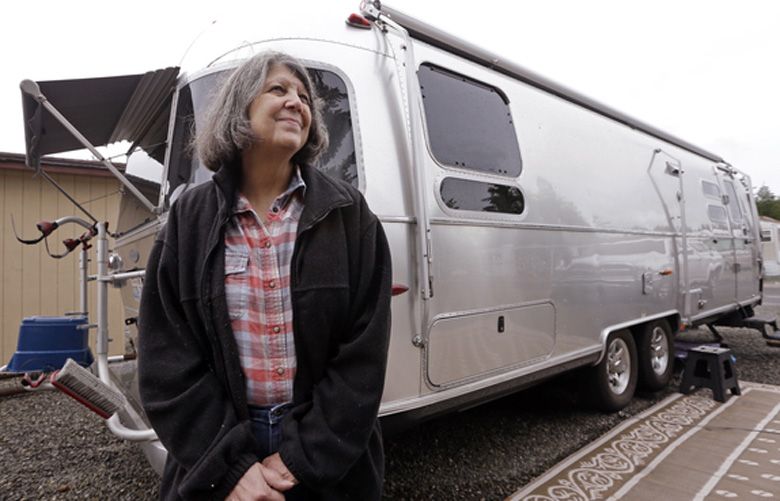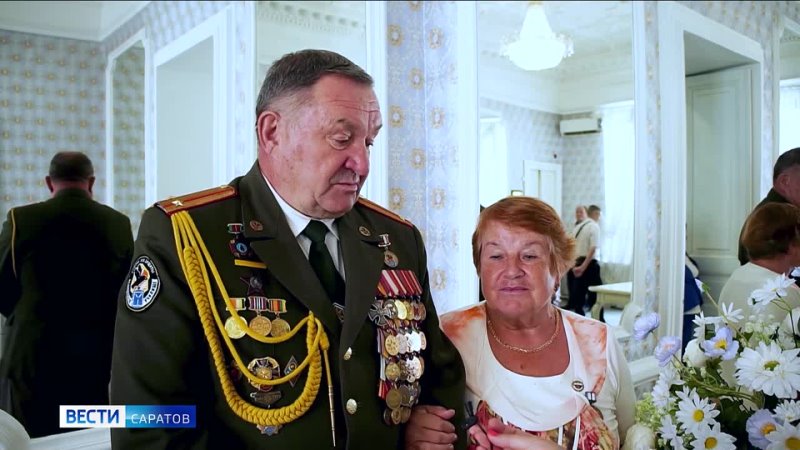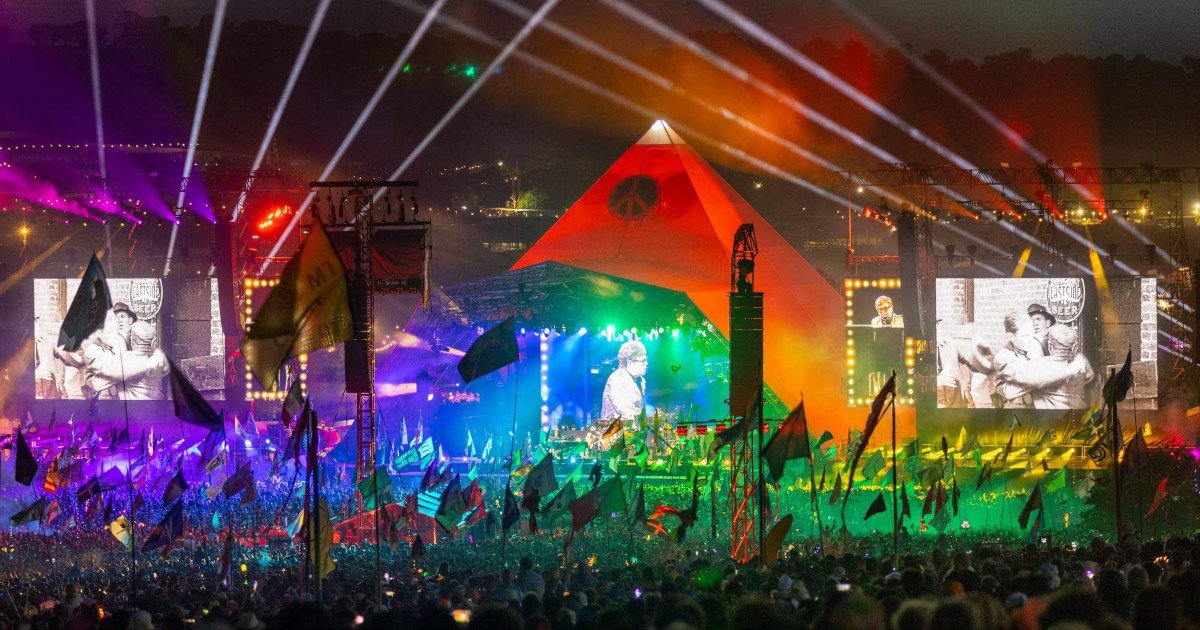Urban Green Spaces As Refuges: One Woman's Seattle Experience During COVID-19

Table of Contents
The Importance of Access to Green Spaces During Lockdown
The psychological impact of the COVID-19 lockdown was profound. Isolation, fear of infection, and the constant barrage of negative news contributed to widespread anxiety and depression. Many struggled with confinement and the lack of opportunities for outdoor recreation. However, scientific evidence strongly supports the benefits of nature for mental and physical health. Spending time in green spaces has been linked to:
- Reduced stress hormones (cortisol): Nature has a calming effect, lowering levels of the stress hormone cortisol, leading to a greater sense of peace and tranquility.
- Increased levels of serotonin and dopamine: These neurotransmitters contribute to feelings of happiness and wellbeing, and exposure to nature has been shown to boost their production.
- Improved sleep quality: The calming effects of nature can significantly improve sleep quality, contributing to better overall health and mood.
- Enhanced immune function: Studies suggest that spending time in nature can strengthen the immune system, making individuals more resilient to illness.
Easy access to Seattle's many urban green spaces significantly mitigated these negative effects for me. Having parks and trails within walking distance allowed me to escape the confines of my apartment and experience the restorative power of nature, even during strict lockdown measures.
Seattle's Parks and Green Spaces as Sanctuaries
Seattle boasts a remarkable network of parks and green spaces, each offering a unique sanctuary. My experiences during the pandemic centered around several key locations:
- Discovery Park: The stunning ocean views and miles of walking trails provided a sense of escape and spaciousness. The sound of the waves and the fresh sea air were incredibly therapeutic.
- Gas Works Park: This unique park, built on the site of a former gas plant, offered a fascinating blend of industrial history and natural beauty. The expansive lawns and views of the city skyline provided a peaceful respite.
- Volunteer Park Conservatory: This beautiful conservatory offered a tranquil escape from the stresses of the pandemic, with its lush greenery and diverse plant life.
My experiences in these spaces were varied:
- Sensory Experiences: I cherished the sights of vibrant flowers and towering trees, the sounds of birdsong and rustling leaves, and the fresh, clean smells of the Pacific Northwest.
- Refuge-like Qualities: Secluded trails, abundant foliage, and water features contributed to a feeling of peace and seclusion, providing much-needed privacy and mental space.
- Social Distancing: I diligently practiced social distancing, enjoying the solitude of nature while occasionally encountering other park-goers who also respected the necessary precautions.
The Role of Urban Green Spaces in Fostering Community
While social distancing was crucial, Seattle's green spaces also facilitated a sense of community, albeit at a distance.
- Positive Interactions: Simple friendly nods, brief conversations while maintaining distance, and shared appreciation for the beauty of the surroundings fostered a sense of connection.
- Shared Experience: There was a palpable feeling of shared experience and resilience within the community, united by our common reliance on these spaces for solace and recreation during a challenging time.
- Sense of Belonging: Shared access to these urban green spaces created a sense of belonging, reminding me that I wasn't alone in facing the pandemic's challenges.
The Long-Term Impact of Urban Green Spaces on Wellbeing
The positive effects of using urban green spaces as refuges during the pandemic continue to resonate.
- Increased Appreciation for Nature: I developed a deeper appreciation for nature's restorative power and its ability to soothe the mind and body.
- New Habits and Routines: I established new habits involving regular outdoor activity, prioritizing walks and hikes as essential components of my daily routine.
- Strengthened Sense of Community: My experience reinforced the importance of community and the role that shared access to green spaces plays in fostering connection and resilience.
The pandemic underscored the urgent need for increased investment in and accessibility to urban green spaces for community wellbeing. We must ensure that everyone, regardless of socioeconomic status or location, has the opportunity to benefit from the restorative power of nature.
Conclusion:
Urban green spaces served as vital refuges during the COVID-19 pandemic, providing significant benefits to my mental and physical health and fostering a sense of community. My Seattle experience highlights the critical need for accessible, well-maintained urban green spaces for all residents. Let's invest in and advocate for the creation and preservation of these vital urban oases. Let's make sure everyone has access to the restorative power of nature, transforming these green spaces into essential refuges for wellbeing. Support initiatives that increase access to urban green spaces in your city and help build healthier, happier communities.

Featured Posts
-
 F1 Uutinen Taponen Rattiin Taenae Vuonna Mahdollisuus Jymypaukkuun
May 24, 2025
F1 Uutinen Taponen Rattiin Taenae Vuonna Mahdollisuus Jymypaukkuun
May 24, 2025 -
 Bolee 39 Par Sozdali Semi Na Kharkovschine Svadebniy Den Data Foto
May 24, 2025
Bolee 39 Par Sozdali Semi Na Kharkovschine Svadebniy Den Data Foto
May 24, 2025 -
 Chine La Repression Des Dissidents Francais
May 24, 2025
Chine La Repression Des Dissidents Francais
May 24, 2025 -
 Konchita Vurst Pobeditel Evrovideniya 2014 Kaming Aut V 13 I Mechta O Bonde
May 24, 2025
Konchita Vurst Pobeditel Evrovideniya 2014 Kaming Aut V 13 I Mechta O Bonde
May 24, 2025 -
 Poor Glastonbury 2025 Headliners Leave Fans Disappointed
May 24, 2025
Poor Glastonbury 2025 Headliners Leave Fans Disappointed
May 24, 2025
